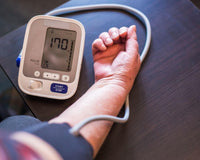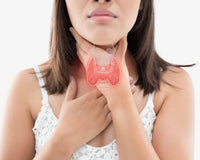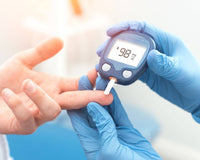Oral herpes is a common sexually transmitted infection that can cause sores, blisters, and swelling around the lips and mouth area. It is most often transmitted through kissing and oral sex with a virus carrier. In this article we discuss oral herpes and oral herpes vs cold sores.
What is Oral Herpes?
Oral herpes is a sexually transmitted infection that causes sores around the mouth area. Oral herpes is caused by infection from herpes-simplex virus type 1 and can also be referred to as cold sores or fever blisters. Experts estimate that between 50 and 80 percent of adults in the United States have been infected with oral herpes.
Once infected, a person will live with oral herpes the rest of their life. However, the virus may remain dormant for extended periods of time. Some people with oral herpes will never experience any noticeable symptoms, but others may have occasional outbreaks accompanied by physical symptoms.
What Causes Oral Herpes?
Oral herpes is caused by infection from the herpes-simplex virus. In those infected, the virus may be present in saliva, semen, or vaginal fluid. After infection, the virus may lay dormant for a long period of time, or it may flare up occasionally and cause mild side effects.
How Is Oral Herpes Spread?
Oral herpes is spread in multiple ways, but most infection occurs as a result of nonsexual contact with infected saliva. Oral herpes can be passed by touching the skin of an infected person, kissing, oral sex, or sharing infected objects like silverware, chapstick, lip gloss, or water bottles.
What Does Oral Herpes Look Like?
An outbreak of oral herpes often leads to the appearance of fluid-filled blisters on the lips or mouth. Blisters can also form on other parts of the face, including around the chin, below the nose, and on the tongue. The blisters may vary in size and turn into sores that may bleed or ooze a white fluid.
At first, oral herpes blisters look similar to small bumps or pimples. The initial infection of oral herpes is usually accompanied by the most severe symptoms. At this stage, it is common for oral herpes to be mistaken for pimples or another infection or disease. As the sores grow, they turn into yellow, red, or white puss-filled blisters. Recurring infections tend to be much less severe, often resulting in only the appearance of small sores around the lips.
Oral Herpes In The Throat
An infection of oral herpes that reaches the throat often causes a condition known as herpes esophagitis. In these cases, the infection will often not result in any outwardly obvious side effects, but may cause internal pain and soreness. Common symptoms of herpes esophagitis include swelling, painful or difficult swallowing, and inflammation. Herpes esophagitis is not very common, but can seriously affect immunocompromised people such as those with cancer, HIV, or AIDS.
Oral Herpes Vs. Cold Sores
Oral herpes is often mistaken for cold sores because the two are very closely related. Cold sores are small blisters that appear around the mouth. They are a symptom of oral herpes that usually appear shortly after infection. While cold sores are a common symptom of oral herpes, they are sometimes not the only side effect that appears after infection.
What Are The Symptoms Of Oral Herpes?
On average, it takes four days for noticeable symptoms to appear in those infected with oral herpes. Common symptoms of oral herpes include cold sores, swollen gums or lips, and itching. However, infection from the herpes-simplex virus is twice as likely to cause no noticeable symptoms as it is to result in any significant side effects.
Oral Herpes Diagnosis
Oral herpes can be difficult to diagnose because the cold sores it causes can be easily mistaken for symptoms of another disease. A doctor’s diagnosis can be made based on information provided and results from a variety of tests. To diagnose oral herpes, a medical professional may conduct a culture analysis, a staining test known as a Tzanck smear, blood sampling, or an antibody study.
Is Oral Herpes Curable?
There is currently no known cure for oral herpes. Once someone has been infected with the herpes-simplex virus, they remain a virus carrier for the rest of their life. However, there are treatment options and medications that can alleviate the symptoms of future outbreaks. Cold sores caused by oral herpes will usually heal within two weeks of infection.
How Is Oral Herpes Treated?
Oral Herpes cannot be completely cured, but daily use of antiviral medicines can help improve symptoms and reduce future outbreaks. Valacyclovir, acyclovir, and famciclovir are commonly available medications that can be used to treat cold sores caused by oral herpes. The application of topical ointments such as penciclovir may also be helpful in alleviating symptoms of oral herpes.
What Is Oral Herpes? Summary
Oral herpes is a sexually transmitted infection that can cause sores around the mouth and lips. It is caused by infection from the herpes simplex virus.
Oral herpes can be difficult to diagnose because it can be mistaken for other conditions that cause cold sores. Prescription medications like valacyclovir and famciclovir can help treat and prevent cold sores caused by oral herpes.








